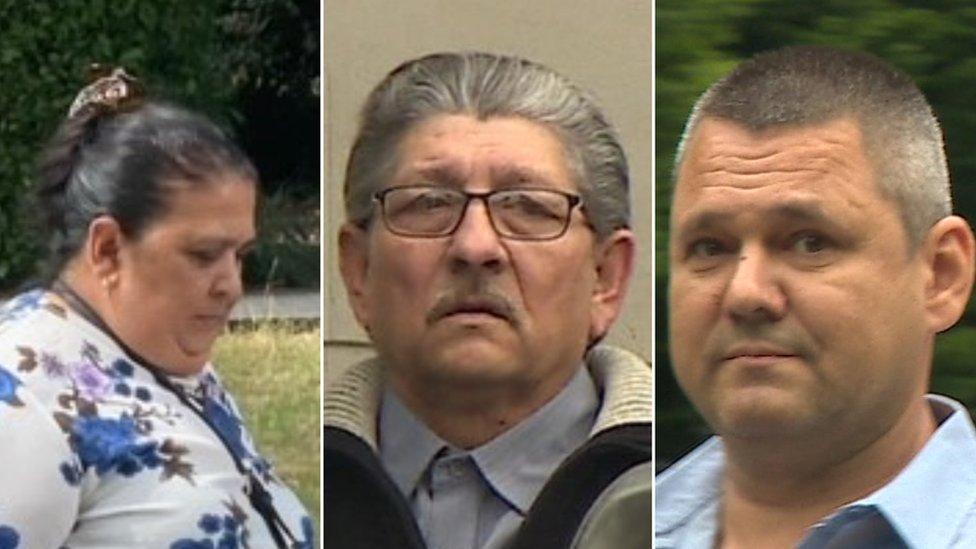Newport: Three sentenced for enslaving vulnerable man
- Published
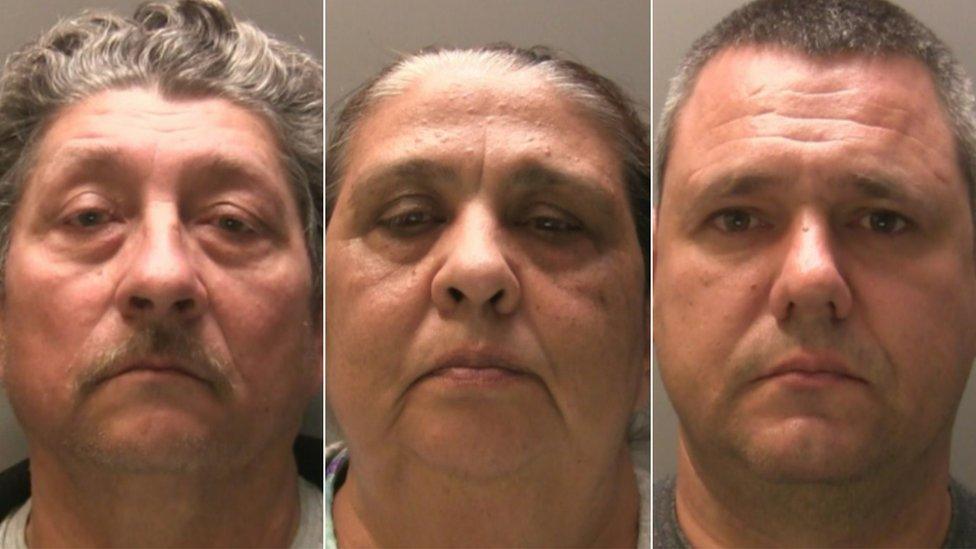
(L-R) Jokubas Stankevicius, Ruta Stankeviciene and Normunds Freibergs denied modern slavery charges
Two men have been jailed and a woman has received a suspended sentence for enslaving a vulnerable man.
Latvian Rolands Kazoks, 31, was stripped of his bank cards and denied showers and clean clothes.
Jokubas Stankevicius, 59, his wife Ruta Stankeviciene, 57, both of Capel Close, and Normunds Freibergs, 41, of Morley Close, were found guilty of forcing someone into compulsory labour.
Freibergs was sentenced to five years in prison, and Stankevicius four years.
Stankeviciene was sentenced to 20 months in prison, which was suspended for 18 months. She will be under curfew between 19:00 and 07:00 until 23 June.
Judge Richard Williams said he took into account her health and mobility issues, but told her she had "played your part in a serious offence".
Referring to her withdrawal of money from Mr Kazoks' account at the local ATM, Judge Williams said: "Your mobility issues did not restrict you from taking your mobility scooter to the cashpoint."
The judge also told the court the housing association the couple rent their home from were considering ending their tenancy.
Freibergs was also found guilty of arranging or facilitating the travel of another person with a view to exploitation, but was found not guilty of a charge of acting as an unlicensed gangmaster.
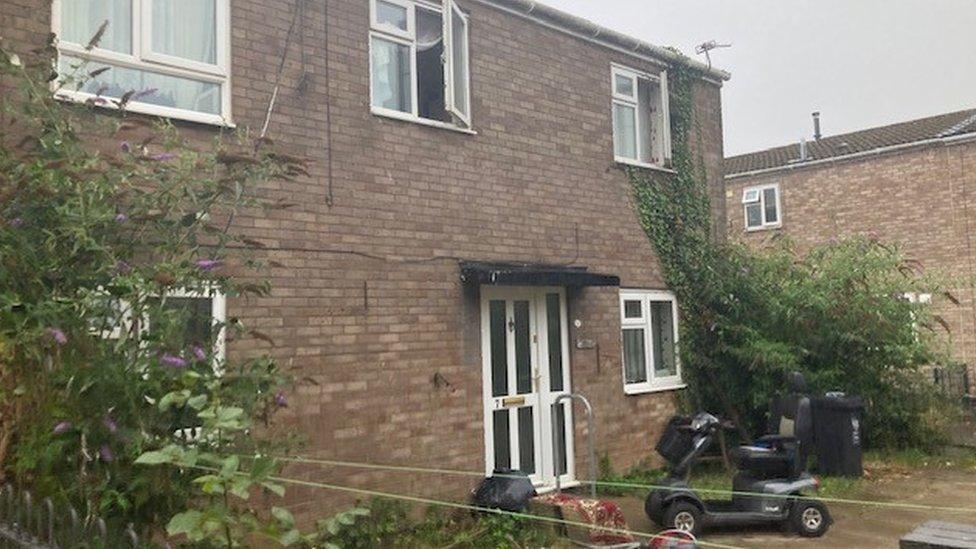
Rolands Kazoks' life was made a living hell in this house
Freibergs arranged for Mr Kazoks to come to the UK in October 2017 and found him a job and lodgings at the home of Jakabus Stankevicius and his wife Ruta, in the Pill area of Newport.
But all three tricked him. They took his passport and control of his bank account, taking about £10,000 from him in total.
For 11 months they forced him to work at a bakery and then a meat processing plant, and took almost every penny he earned.
He said he was threatened with violence when he asked what had happened to his wages.
They told him he owed them money for rent, job arrangement fees and because of Brexit.
'I will never forget'
Colleagues at the meat processing plant in Abergavenny, Monmouthshire, became concerned for him after seeing him come to work in sliders, a type of flip flop, in the snow.
The government body Gangmasters Licensing and Labour Authority, external (GLAA) began an investigation and Mr Kazoks later went into their care.
In his statement, Rolands Kazoks said he wanted to come to the UK because he knew the wages paid were considerably more than in Latvia.
He said he wanted to send money home to his family who were living in Latvia with "little money, heat or food".
Rolands Kazoks said his father had TB and was only receiving about €100 (£86) a month in benefits.
Mr Kazoks said: "I will never forget what they did to me."
He said he was too scared to return to south Wales because he believed he would face violence from friends of the three.
Now, he said he had "freedom" and a new life. He is taking English lessons with the aim of securing a better paid job and is studying hospitality at college.
Slavery 'common'
Laura Thomas, of the GLAA, told BBC Radio Wales Drive modern slavery and forced labour was "absolutely more common" than people may think.
"There are signs that people could recognise. Perhaps look at the person's appearance. How are they getting to and from work? Are they asking for all the overtime? Do they have to leave work immediately to go to another job?
"Not all of these signs mean the person is a victim of forced labour, but by asking if they're ok and creating that community, we can help people."
- Published12 August 2022
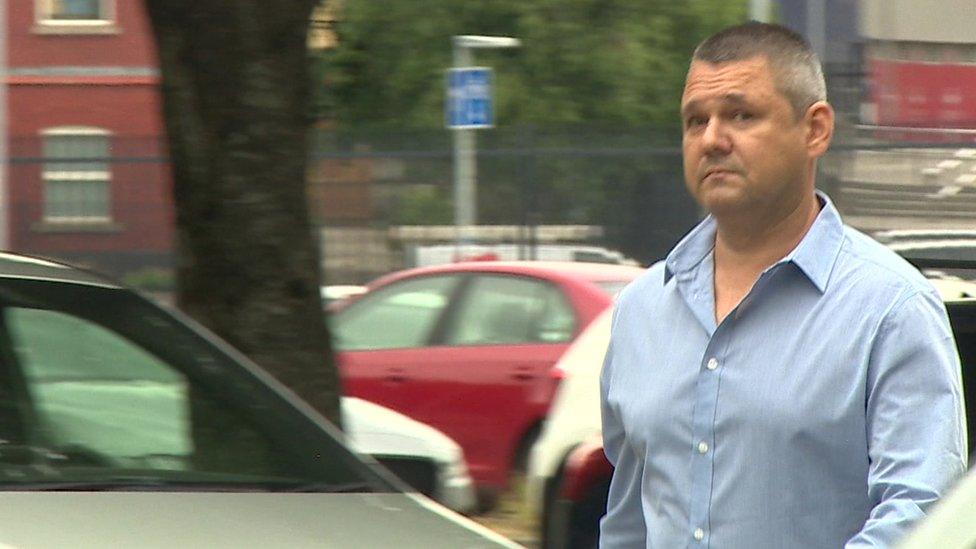
- Published16 August 2022
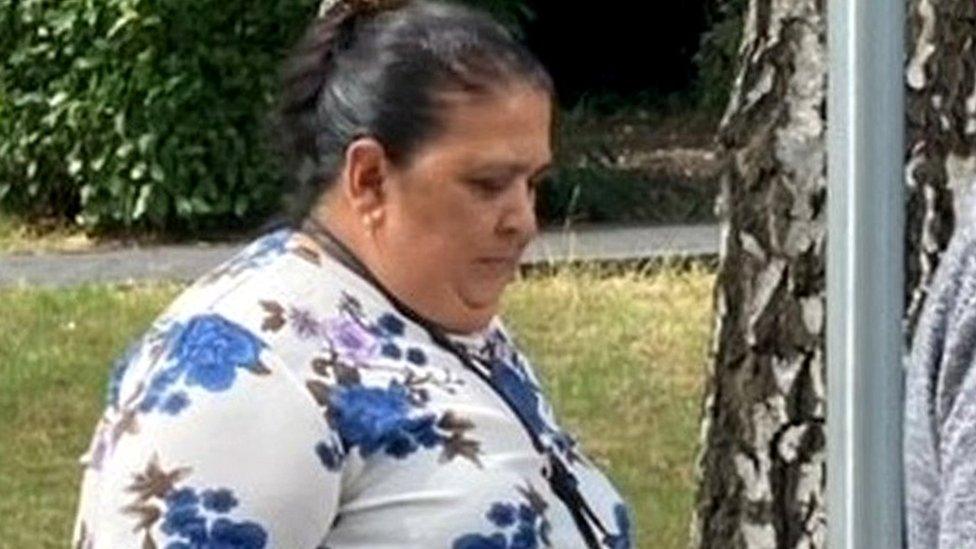
- Published28 July 2022
